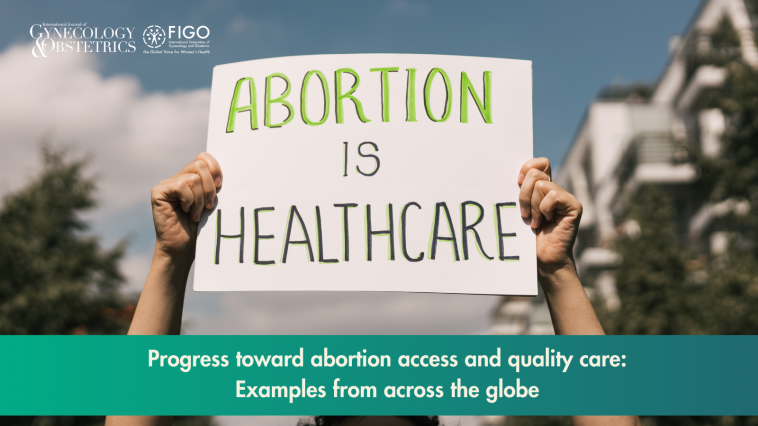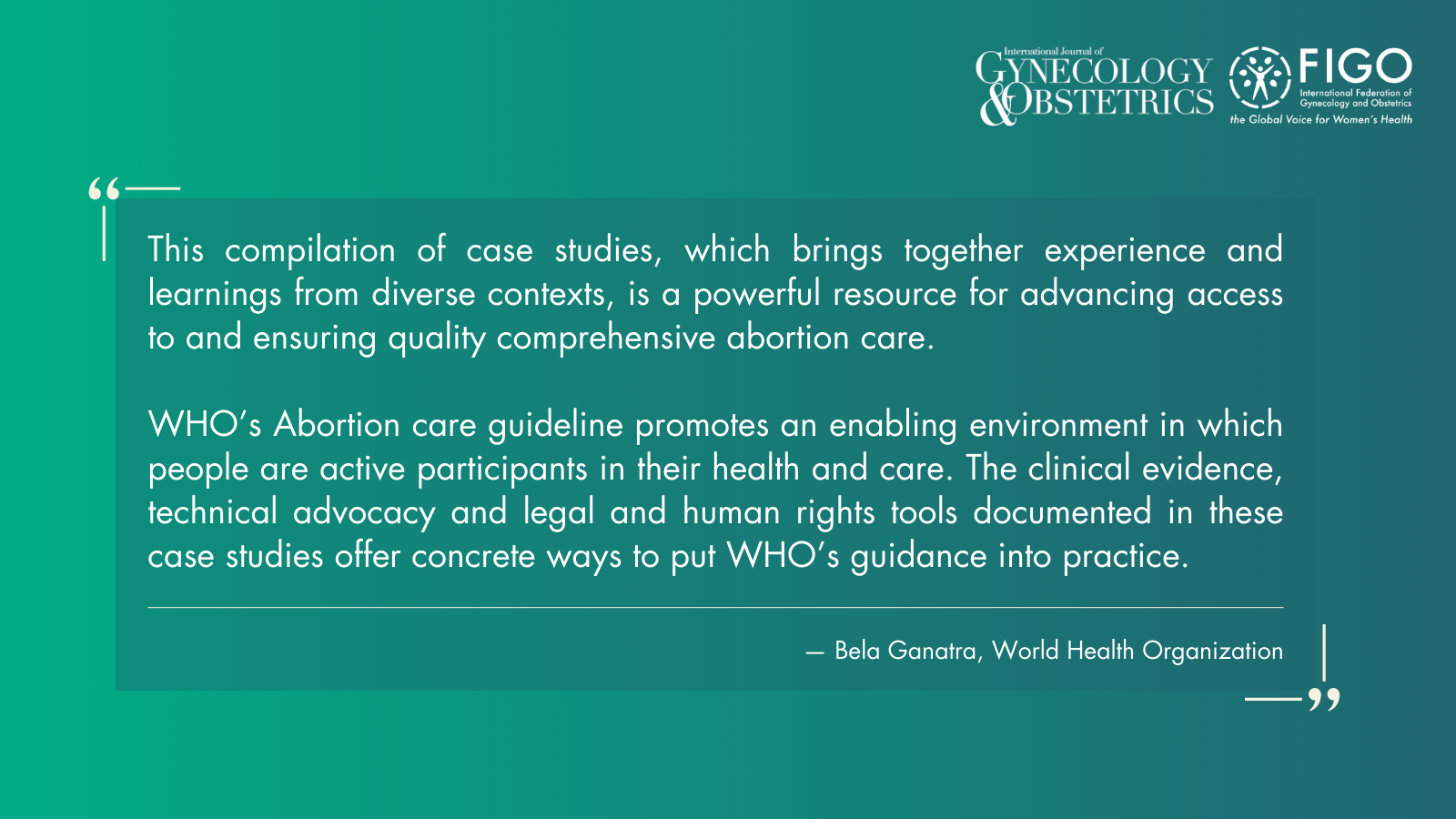Advancing together towards abortion access and quality care

A new supplement published in the International Journal of Gynecology (IJGO) describes the remarkable progress made in abortion access in crucial areas, such as law and policy reforms, improved access to information and supportive health systems and communities.
This compilation of positive case studies brings together examples from diverse regions, such as England and Wales, the Democratic Republic of Congo, Argentina and India.
Some of the individual papers reflect on the lengthy and non-linear processes that brought change and how different tools such as clinical evidence and legal analysis were used. Other examples highlight the transformative role healthcare providers play and how their powerful and credible voices are crucial to bringing about change. Collaborative efforts, as seen in projects led by FIGO in 10 African and Latin American countries, demonstrate that national professional societies of obstetrics and gyneacology can help reduce abortion-related stigma, influence decision makers and improve access to safe abortion.
There are examples shared where Ministries of Health, notably in Botswana and Nepal, have taken the lead in spearheading progressive steps in their countries. The diverse case studies highlight challenges in thinking, such as application of grounds-based approaches. They also demonstrate the effectiveness of training huge workforces and the positive impact of multi-sector political engagement.

This IJGO supplement celebrates the undeniable progress achieved in some countries and calls for continued collaboration among stakeholders across all sectors. As the world approaches the 2030, the year for achievement of the Sustainable Development Goals, the collective power of stakeholders and a mix of strategies will be crucial in achieving sexual and reproductive health and rights for all.
For a detailed exploration of these impactful case studies, read the special issue here.